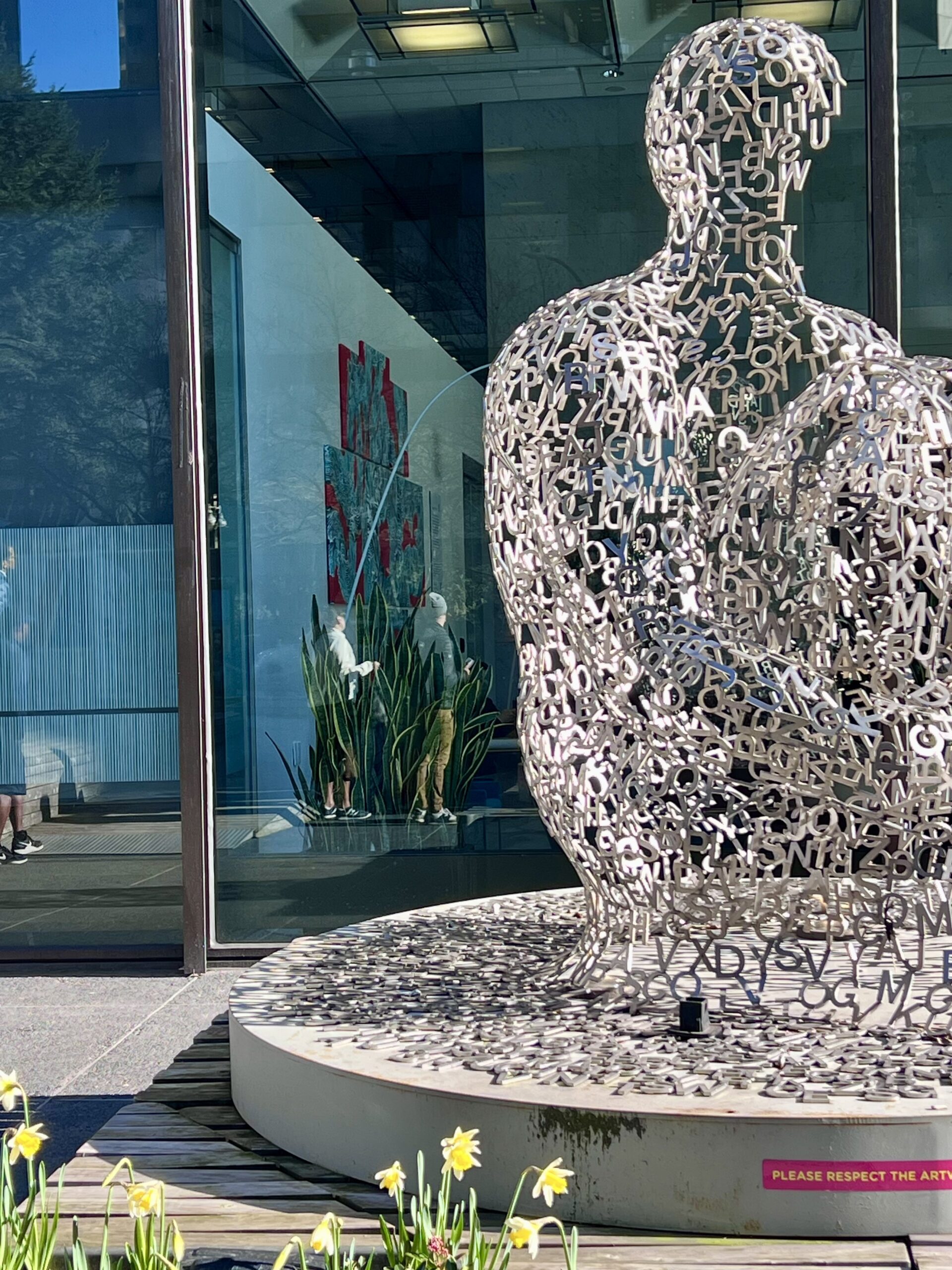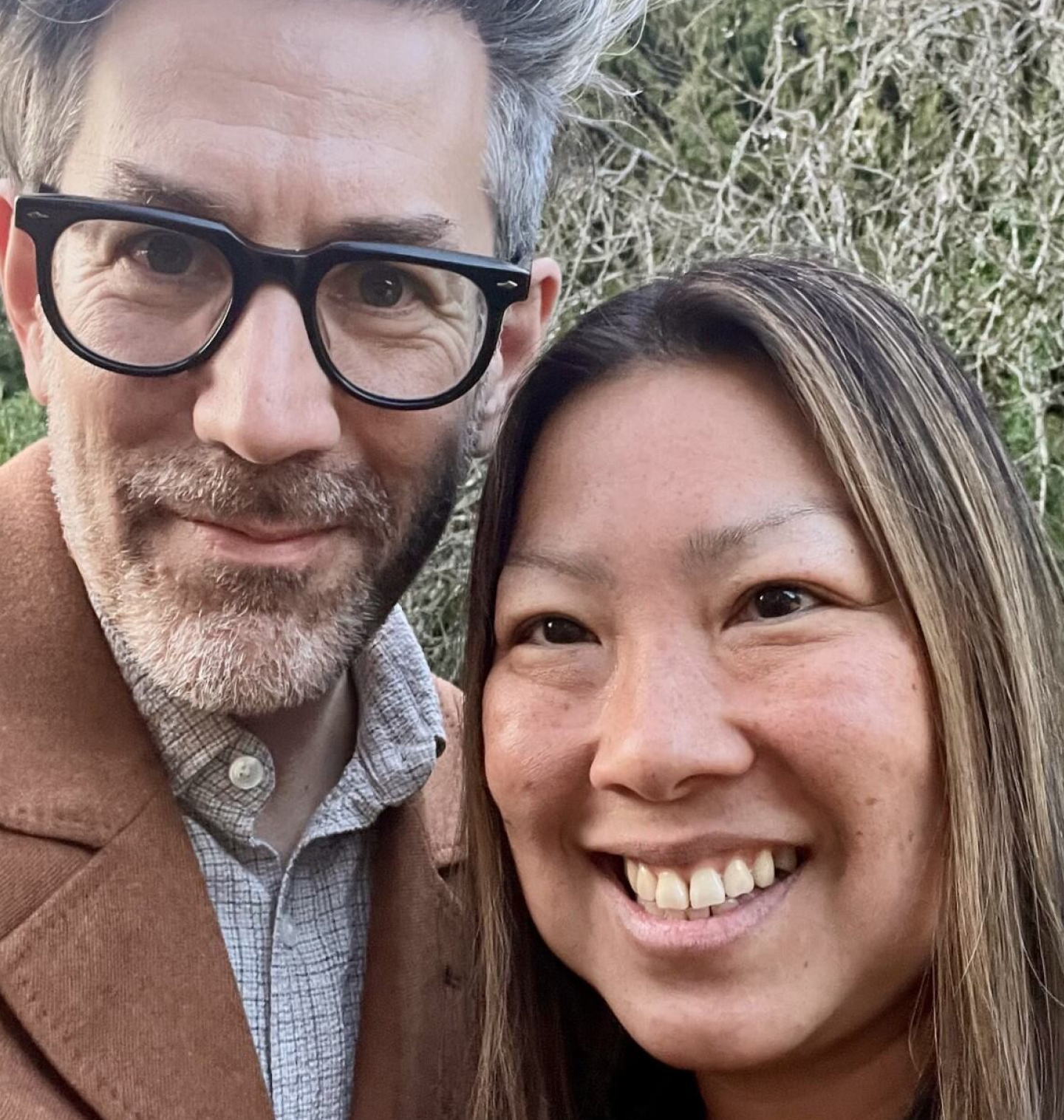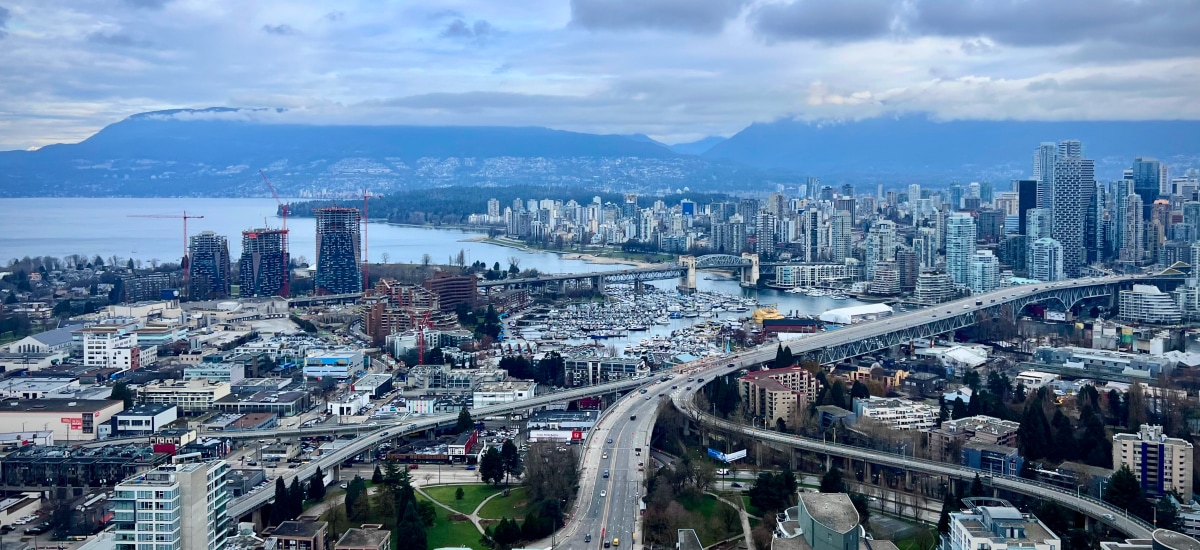The view from an under-construction high-rise, during a discussion of affordable housing.

By Andrei Mylroie
Partner
A few weeks ago, I joined a group of business and government leaders on a trade study mission to Vancouver, B.C. I always love a trip to “Van.” It’s where my father grew up, and it’s among the most stunning cities in the world (mountains, architecture, culture, ocean, diversity: check check check check check).
More than this, though, joining the delegation put together by the Seattle Metropolitan Chamber of Commerce was a chance to learn from one of our region’s most important trade and business partners — and to talk transit, technology, trade and more.
The timing for this could not have been more … timely. Just days before we left, the Trump administration announced new tariffs would be put in place. It was an interesting moment to travel and to discuss the future of U.S.-Canada business collaboration and trade partnerships.
Here are some takeaways about what I heard, felt and saw.

Public art is scattered throughout Vancouver.
The threats around tariffs and sovereignty are being taken seriously.
Tariffs could do tremendous harm to the Canadian economy. Leaders we heard from shared data demonstrating that Canadians are resolute about fighting back. Similarly, the “51st state” statements are not seen as a joke, but as a legitimate threat to sovereignty. This underlined for me the importance of the statements we make as Americans, and of the commitment we show to our neighbors, business partners and allies.
Cross-border collaboration can bring solutions to shared challenges.
When it comes to transit, congestion, attracting capital, housing or technology transfer, Seattle and Vancouver are working on many of the same issues. More than this, people we met with see more opportunity to collaborate as a “Cascadia” region, not less. Canadians want to work together and foster economic cooperation, just as we want to learn and collaborate with them.
Business leaders in our delegation wanted to move forward, not apart.
I didn’t hear a single person arguing for isolation or trade restrictions or to limit relationships. Everyone wanted more cross-border collaboration, more trade, more success, more certainty. There was deep concern about what reduced U.S.-Canada trade would mean for business and our shared economy.
Our shared opportunities transcend traditional trade.
We were hosted at Microsoft’s offices and spent plenty of time with our neighbors discussing trade, but our opportunities are much bigger. From the 2026 World Cup (both Seattle and Vancouver will host games) to tourism and natural beauty, we have so much opportunity to promote our region and strengthen Seattle-Vancouver trade partnerships.

Andrei at the U.S. Consulate with
Neepaporn “A” Boungjaktha from the Port of Seattle.
Everyone can play a role in fostering economic cooperation.
I was struck by how important it was to the people we met with that nearly 60 leaders from Seattle showed up with openness and humility. We need to return the favor. Leaders in Canada said that we should invite them down to talk more about doing more business together. That we should keep visiting them, for work and for fun. They said our voices and presence matter.
I think and hope that’s something all of us can get behind.
I’m paraphrasing a bit, but one Canadian we met with — a leader in the arts — said, “To be in this business is to be in the business of optimism.”
I agree, but for all of us. We need to marry our commitment to international business, friendship and trade with a healthy dose of optimism. Together, we can lobby for and work toward a better future.
Just as we always have.

